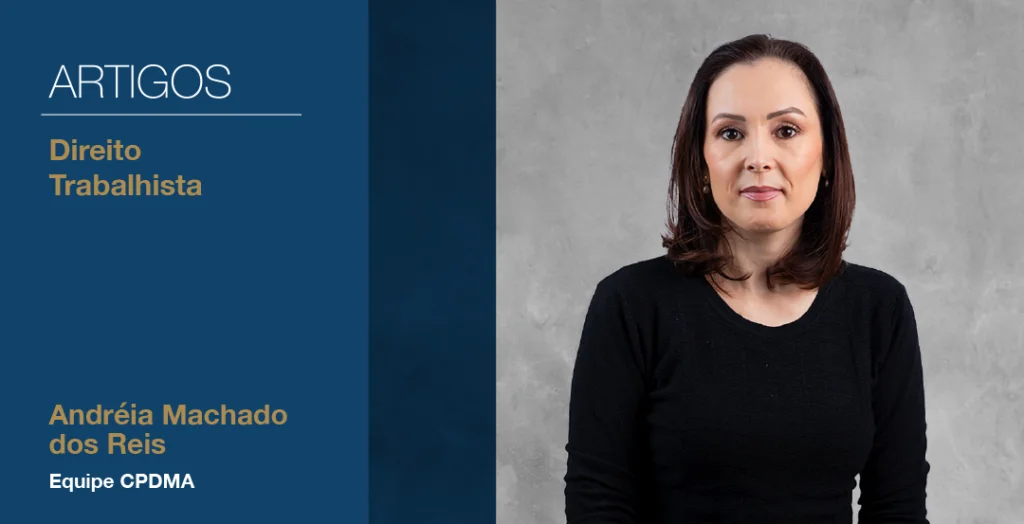In the age of technology, the start-up ecosystem has attracted many people in recent decades. This is mainly due to the rapid rise of the digital economy, which has led to many success stories of companies that today represent giant players in the market, regardless of the sector in which they operate. In this context of scalable entrepreneurial initiatives, startups have shown themselves to be a huge attraction [...]
CPDMA BLOG
Suspension of labor executions against companies in the same economic group

In a recent decision, the STF suspended the processing of labor executions that discuss the inclusion, in the execution phase, of a company that is part of an economic group that did not participate in the knowledge process.
In labor proceedings, when the execution phase is reached and the main debtor does not have enough assets to pay the debt, judges often redirect the execution to another company that is part of the same group.
When the company joins as a defendant only in the enforcement phase, it does not take part in the taking of evidence or the trial of the case, but it is jointly and severally liable for the sentence imposed and may have its assets seized to pay the debt.
In such a situation, in order to lodge an appeal, the enforcement must be guaranteed by depositing the amount enforced.
The redirection of enforcement has a legal basis in art. 2, paragraph 2 of the Consolidation of Labor Laws, which defines an economic group for labor purposes.
This procedure has generated many appeals and a multiplication of divergent decisions, so the suspension aims to guarantee legal certainty until a final decision is handed down by the STF.
The Supreme Court had already recognized the general repercussion of the matter in 2022 and, in May 2023, ordered a nationwide suspension of the processing of all labor executions that deal with the issue. The decision was handed down in RE 1.387.795 by Justice Dias Toffoli.
In the trial, the STF will analyze whether a company that is part of the same economic group and did not participate in the knowledge phase can be included in the labor execution as jointly and severally liable.
This is because art. 513, paragraph 5 of the Code of Civil Procedure states that enforcement of the judgment cannot be promoted against the co-obligor or co-responsible party who did not participate in the knowledge phase.
A não observância de tal regra ofenderia os princípios constitucionais da ampla defesa, do contraditório, do devido processo legal e, também a cláusula de reserva de plenário (art. 97 da CRFB/88 e Súmula Vinculante 10 do STF).
This is how the Supreme Court will settle the issue when it decides the merits.
Conclui-se, portanto, que o assunto vem gerando divergência nas decisões e o enfrentamento pelo Supremo Tribunal Federal trará estabilidade a jurisprudência trabalhista e, ao mesmo tempo, dará mais segurança as empresas que, não raras vezes, acabam sendo responsabilizadas por débitos que não deram causa.
Recent posts
Closing our series of posts on the Classes of Intellectual Property Assets, today we're going to look at the registration of COPYRIGHT. An author is the natural person who creates a literary, artistic or scientific work. Copyright protects such works and can be patrimonial (right to commercial exploitation of the work) or moral (claim of authorship, conservation [...]
On June 26, 2024, a new type of operation was published covering companies with a tax domicile in Rio Grande do Sul. This is yet another measure taken by the Federal Government to deal with the damage caused by the floods in Rio Grande do Sul. The new operation, called "SOS-RS Operation", was instituted by PGFN/MF Ordinance No. [...].
In our series of posts explaining the differences between the classes of intellectual assets, today we'll look at DOMAIN REGISTRATION. The protection of a website's electronic address (domain) is carried out at Registro.BR. In this case, the domain availability search is essential for registration. If a third party tries to register a [...]
Today's topic in our series of posts explaining the differences between classes of intellectual assets will be: SOFTWARE REGISTRATION. Software registration protects the computer program itself, i.e. the source code. Registration is essential for proving authorship of the development. It is done at the INPI [...]
In our series of posts explaining the differences between classes of intellectual assets, today we're going to look at INDUSTRIAL DESIGN. Industrial Design is the ornamental plastic form of an object - for example, the design of a product or the set of lines applied to a product, such as a print - that gives it [...]


